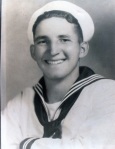Results through others – it is a simple concept of few words. It ought to be easier and more satisfying. Yet the inherent challenges cause both metaphorical and literal dogs to get kicked daily.
Some call it leadership. Some call it management. It is a unique alchemy that moves seamlessly from one to the other at any point in time on any day. Some believe that at a granular level, leadership is about people and management about stuff. To achieve results through others requires both. I like the term Leader as the catchall word to define the work of being the person in charge, the boss, the team leader, the place where the buck stops for a specific group of people.
Leadership is the solution to what ails us and we are seriously ailed in America at this point – largely due to leadership failure in both the private and public sectors. Amid a parade of criminals, hucksters and PR machine celebrity CEO’s we mentally sort the wheat from the chaff in determining credibility. Bernie Madoff, Dennis Koslowski, Jeffrey Skilling go to prison.
Richard Branson builds great companies with good people providing great service. Bill Gates and Steven Jobs build companies that change the world. Behind the scenes and in no small part supporting and making possible the monumental success of great CEO’s is a legion of shop floor to top floor leaders that make it happen every day.
If you are in the shop-floor to top-floor hierarchy, your perspective and related actions impact the business and the lives of those you lead – every day.
The best leaders provide profound value to the business and the lives of those led. What are you going to learn in 2012 to make your job as a leader easier, more satisfying and more valuable? Learning that improves competence, courage and effectiveness when passed on to those led creates exponential leverage for results.
There is career security. There is no job security. You are a professional leader. Remember, leadership is the solution to what ails us and plenty ails us. That is career security and the dog is getting tired of being the best friend of someone who kicks her. I’m the Outsider and that’s what I think.
New blog: Thank you for being a subscriber to this blog. It is moving to the Route 2 Results website. Please go to the site and subscribe in order to continue to receive regular postings. As always I will protect your privacy and time. Thank you and Best wishes for Health happiness and prosperity in 2012.
